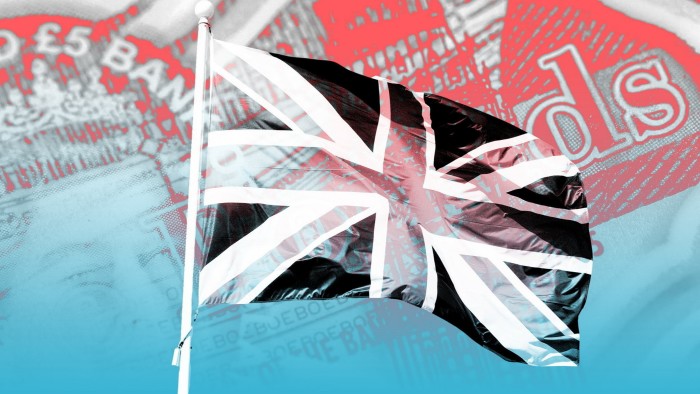Unlock the Editor’s Digest for free
Roula Khalaf, Editor of the FT, selects her favourite stories in this weekly newsletter.
Nineteen ninety five. Me and another asset management grad are in Balls Brothers wine bar after work. We’re discussing the industry with an old sales hand that we’ll call Peter, because that was his name.
Anyway, Peter had zero respect for those of us who actually ran the funds. If you think this game has anything to do with performance, he said to us, you’re both idiots.
He was right, I soon learned. You only need to see how many investment professionals drive a Porsche despite a career of average returns. What matters is gathering lots of assets. And then keeping them.
In those days we did the latter by flying our US clients and their partners to London and putting them up in the palatial company flat overlooking the Thames. George Bernard Shaw used to live there and it didn’t suck.
But that was a last resort. A portfolio manager’s first line of defence is learning how to write quarterly reviews when returns have been dire. It isn’t my fault. Please don’t withdraw your cash!
And most investors don’t — even if their fund has lagged behind its benchmark or its peers yet again. This is strange, because behavioural scientists tell us we hate losses significantly more than we love gains.
But let’s face it, you can’t scream “I’m broke!” under your pillow in the same breath as phoning your wealth manager to fire them. That’s why money is so sticky as they say in the trade.
Is that so bad though, I’ve always wondered? For starters, lazy investors remain fully exposed when markets rebound, while their spritelier peers miss out. There is also no persistence, if active funds are your bag.
Top-ranked ones soon drop down the league tables, studies show, while fourth-quartile funds are just as likely to soar. Indeed, the worst investment strategy is giving your cash to managers with the most stars. You should do the opposite.
Some may have a few good years performance-wise. But after that it’s all about inflows and hence the importance of quarterly reviews. Given how bad the first three months have been for everyone, what can be said this time?
Expect to read that the correction (it’s never a crash) in US technology stocks was overdue. This is why you had only a fifth of your portfolio in them, rather than an index weight of 25 per cent. Be thankful.
Tariffs, the Federal Reserve, Deepseek, uncertainty (one of my favourites — like it’s a new thing). All these will be to blame for why the smartest brains in finance said Trump would be good for equities but got it wrong.
And of course they would have been overweight in German defence names if only their ESG policies had allowed it. They were clearly undervalued. But not those resurgent Chinese shares. Can’t trust the numbers.
Teasing aside, there is one section of these reviews worth keeping an eye out for. And that is any explanation of what the hell managers are going to do next. The problem is that so few offer this.
That’s because during a sell-off consistency tends to evaporate. For example, if Asia ex-Japan stocks were attractive from a valuation perspective before the recent slump, they must be more so today.
Ditto those who argued that US companies were inherently “exceptional” in January. They’re still exceptional, only cheaper now. But no, when prices wobble so does conviction. Trump’s changed everything! Everything!
I mention this bad habit so you can catch me if I do it myself. I’m no longer in the asset gathering business and my only wish is to maximise returns. There must be no fooling anyone. No failures of logic.
Thus, last week’s column ended by asking: what should I do with my holdings given the substantial moves in markets? Is there anything out there worth buying now? And if I don’t like US stocks, isn’t it nonsensical to own other equity funds?
Well, yes, I’m still a bear on the S&P 500, despite it trailing my other holdings by 7 per cent in aggregate this year. Triple that gap and maybe I’ll consider owning some again. But I’m not quite ready to abandon equities completely.
My guess is that Trump will soften on tariffs. In a previous column I showed how little they matter anyway — but stocks would like that. So I should put some more money into Japan — my ETF is down almost a tenth in a week.
My Asia fund is 5 per cent lower too. I remain a fan of both these markets and think they are oversold. But I’ve also had my eye on woeful UK small- caps for ages and they have just racked up a second quarterly drop on the trot.
The FTSE 250 index can be bought for more or less the same price as the value of all the assets on its constituent companies’ balance sheets. The price to earnings is 10 times and those earnings are expected to grow double digits this year.
How will I fund this purchase? I’m going to sell my energy fund that is up 6 per cent this year, but is too small to make much of a difference to anything. Combined, my exposure to the UK would rise to almost 40 per cent.
Wowsers! Then again, I’ve also written previously about wanting some emerging markets exposure. With Britain’s pot-holes, ramshackle trains and dire finances — I get some in with the bargain too!
Bring on the next quarter. There can’t be too many portfolios out there with a three-quarter weighing in equities that is up for the year. Only just — but I’ll take it.
The author is a former portfolio manager. Email: stuart.kirk@ft.com; X: @stuartkirk__









